If you are a cosmetics or beauty brand and are looking to expand your sales into China, then you should consider Tmall Global. Tmall Global is the cross-border e-commerce platform of Tmall, which is the largest online retail platform in China.
On Tmall Global, brands can sell products directly to consumers in China. In this article, we will provide a guide for cosmetics and beauty brands that want to sell on Tmall Global. We will cover topics such as registering an account on Tmall Global, setting up an authorized store on Tmall Global, and preparing your products for sale on Tmall Global.
What Is Tmall Global?
Tmall Global is the sub-platform of Alibaba Group-owned Tmall, an open platform marketplace in China. Tmall Global is one of the largest cross-border e-commerce platforms in China and the world today. It operates on a business-to-consumer model, unlikely Taobao, which is mainly C2C platform.
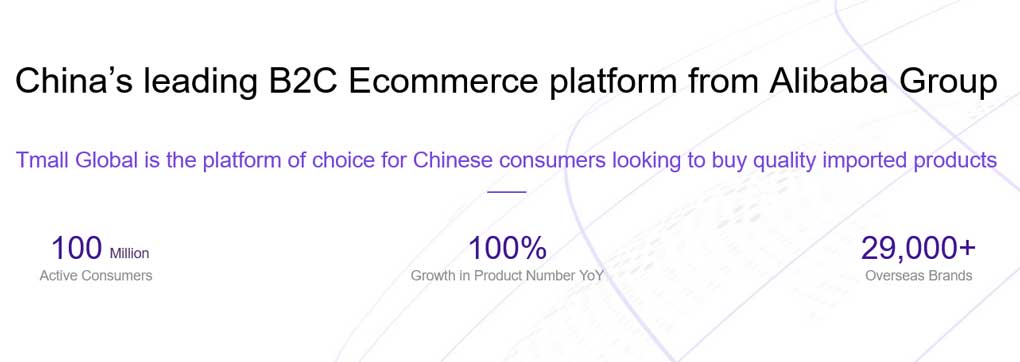
While Tmall holds the largest market share of the online store segment in China, Tmall Global provides its users access to genuine products offered by international brands. This pivot to integrating international brands into their platform results from the increasing concern for counterfeit products that abound in the Chinese e-commerce market.
Essentially, Tmall Global allows foreign brands to sell their products originally produced in their territory to Chinese consumers. They can do this without undergoing the legal red tape international brands typically face when opening an e-commerce store in China.
Most Tmall Global products are housed within a bonded warehouse in Chinese free trade zones. Some are directly shipped from warehouses abroad.
Types of Tmall Global Stores
You can set up three types of stores in Tmall Global. Your choice of store type depends on your needs when you sell your products in mainland China. The three types of stores are:
- Tmall Flagship store
- Tmall Specialty store
- Tmall Franchise store
We’ll explain these store types in more detail below:
Tmall Global Flagship Store
Flagship stores are great for foreign brands that have trademarks and copyrights but don’t have a physical presence in China and a Chinese retail business license, which is a requirement to open a domestic Tmall store.
Flagship stores provide robust features that brands can use throughout Alibaba’s ecosystem, including live streaming. If you’re a trademark brand owner, a flagship store is the perfect store type for your company.
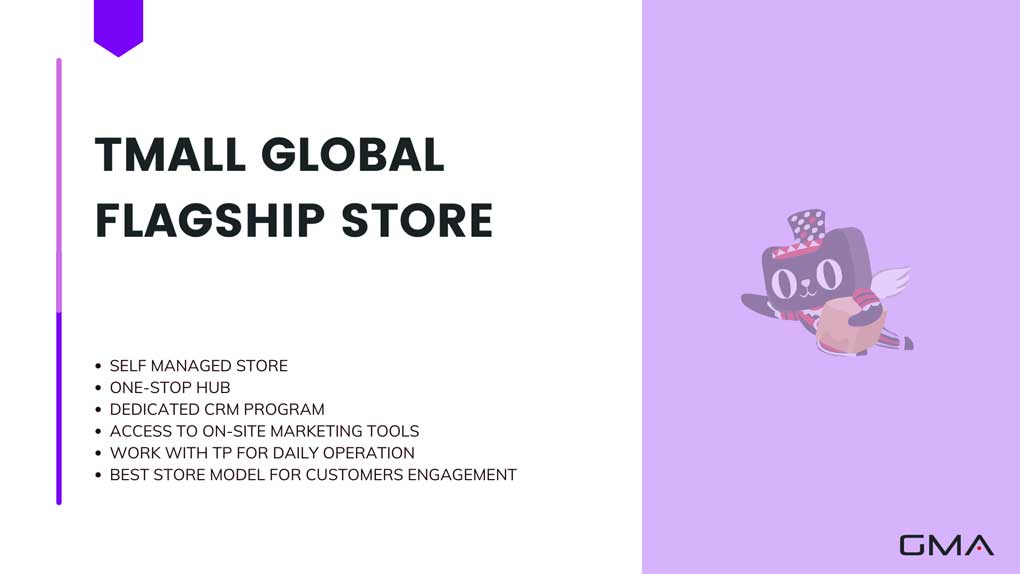
However, there are some requirements that you must meet before opening a flagship store.
Your products have to pass Chinese international customs and Tmall Global security standards in terms of the authenticity of the product and its origin. Other requirements include providing Chinese language customer support, product labels, and product descriptions, with the international metric system adopted as their official unit of measurement. We recommend Chinese Alitalk customer service to fulfill one of these requirements.
Tmall Global Specialty Store
Specialty stores are the choice of international merchants who are authorized to distribute branded products in multiple locations like mainland China. Unlike a Tmall flagship store, specialty stores do not require a trademark and copyright to sell on the Chinese e-commerce market.
Tmall Global Franchise or Monopolized Store
This is another type of store that foreign merchants can open to sell branded goods to China. The difference between this store type and a specialty-type store is that international merchants have licenses to sell commodities from different brands, not just from a single one.
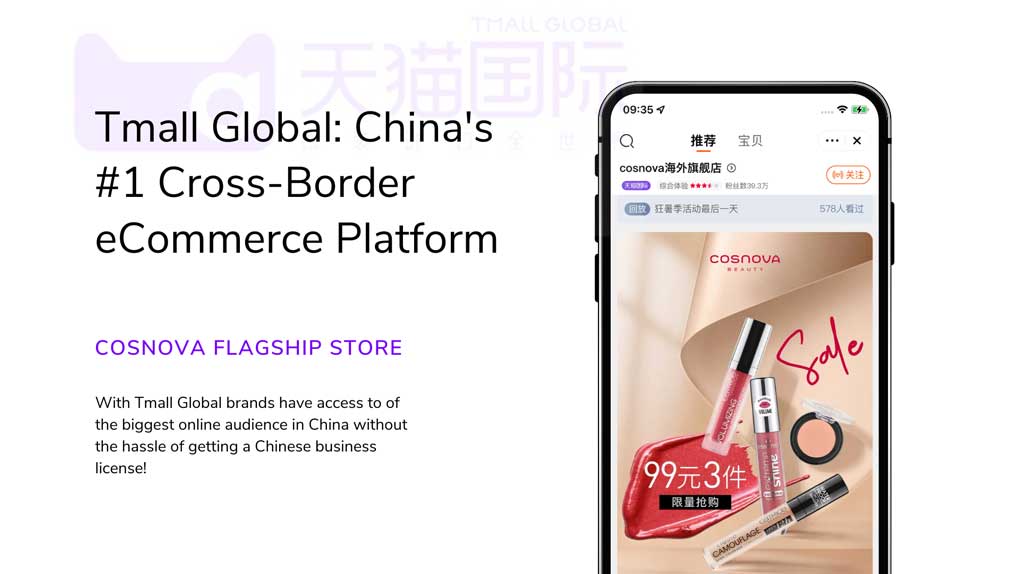
Tmall Vs. Tmall Global: What’s the Difference?
Both Tmall and Tmall Global are owned by Alibaba. What makes Tmall Global different is that it is the cross-border e-commerce platform of the Alibaba ecosystem. While it’s true that foreign companies can still open a shop in Tmall, Tmall Global is a more viable option for those that want to save time when opening a store and selling directly to Chinese consumers.
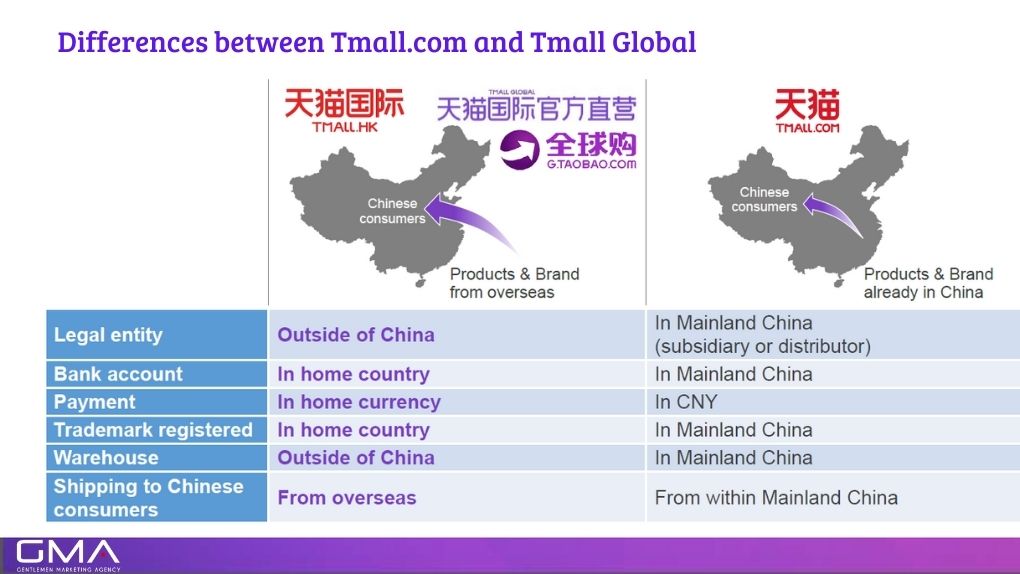
Tmall Global gives international businesses a storefront and unfiltered access to millions of Chinese consumers. Overseas vendors with no physical location in mainland China can tap into China’s large consumer base and compete in the country’s online shopping scene.
Essentially, Tmall Global works like a giant shopping space for domestic consumers to buy a foreign branded product from a Tmall shop. Tmall, on the other hand, will cater to Chinese consumers who are not looking for brands that come from overseas businesses.
Why Brands Have Both Tmall and Tmall Global Accounts
While we said that foreign companies are likely to have Tmall Global stores instead of Tmall stores, some have already established the latter very early. This might be because they were already registered with the Chinese authorities and selling in mainland China. Therefore, setting up a Tmall authorized store makes a lot of sense.
However, these brands may still want to capitalize on the cross-border e-commerce features of Tmall Global. For example, they may have branded products that they want to test in some respective regions. If the product sells well, then they can import these products into China’s bonded warehouses, where they’ll become goods sold via the Tmall domestic channel.
In short, foreign companies may use a Tmall Global account to test the waters for their latest products and assess consumer demand. If everything goes well, they’ll sell to Tmall to eliminate the additional per-unit costs.
Advantages and Disadvantages of Selling on Tmall Global
Tmall Global is best known for its high-quality products. No matter the product category, Tmall Global guarantees genuine products to Chinese consumers as a cross-border e-commerce platform. This feature makes the platform a great entry point when looking for ways to sell in mainland China.
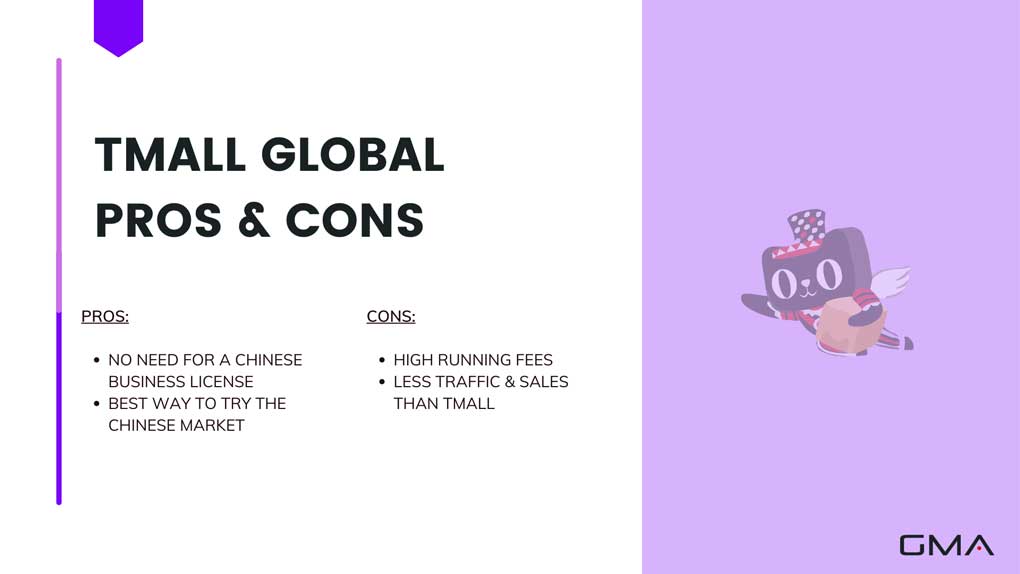
But, other than excellent customer experience and imported products, what else does Tmall Global offer its consumers and brand owners? Additionally, what should brand owners look out for when opening a shop in Tmall Global?
Here are the advantages and disadvantages that you need to know about Tmall Global:
Advantage: Skip the Legal Red Tape
With Tmall, you can access hundreds of millions of Chinese consumers, receive payment, and drive traffic to your products. The problem is that to sell on this e-commerce platform, companies have to go through red tape and submit many legal documents.
Foreign brands with no experience in the China market are at a disadvantage. That’s why Tmall Global is great for them since they no longer have to go through the same rigorous process.
They still have to submit documents for their authorization or copyright, but they don’t need other documents like a business license and a license to run a website as a Chinese entity. Also, they no longer have to pay the fees that come with filing for these documents, saving them a good deal of money.
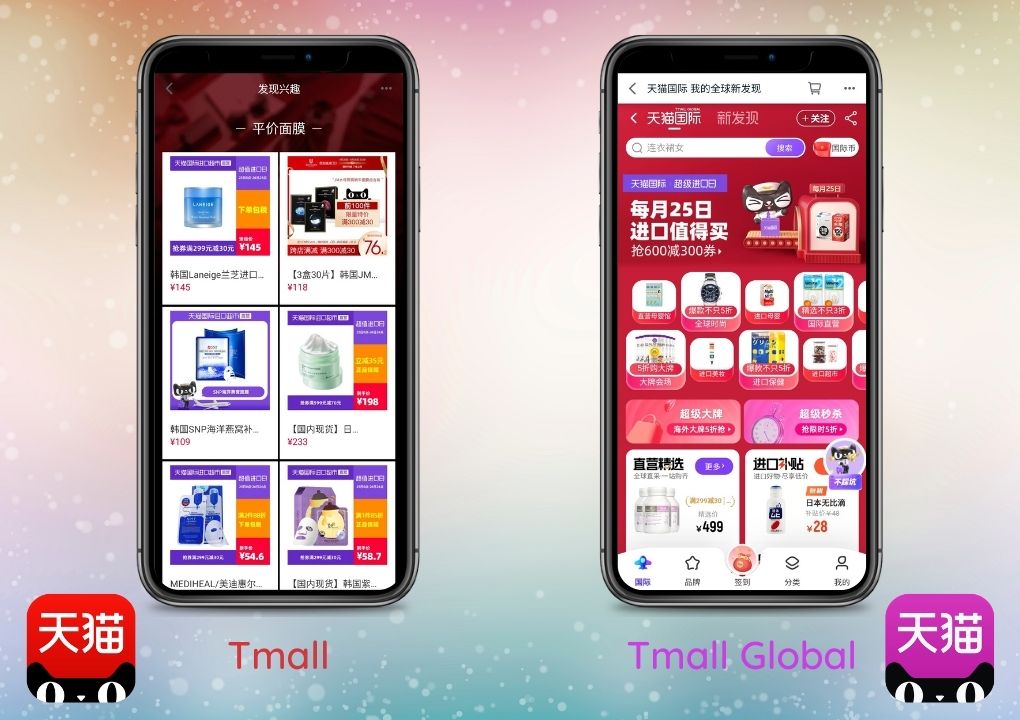
Disadvantage: More Expensive Security Deposit and Maintenance Fees
While you won’t have to pay licensing to open a Tmall shop, you still have to pay other fees. Depending on your budget, this may be pretty expensive. For example, when setting up your Tmall Global store, you’ll have to pay 25,000 USD for a consumer protection fee, or security fee. While this is a large fee, it is still less expensive and time-consuming than creating a business license. In comparison, the security deposit fee for Tmall ranges from 4,500 to 22,000 USD, excluding the hefty licensing fees.
Here is a list of expenses you’ll have to pay when registering your business in China.
Another fee you’ll have to pay for Tmall Global is an annual technical maintenance fee. Both Tmall and Tmall Global stores are required to pay this fee. As for the security deposit, Tmall Global’s fee is more expensive, ranging between 5,000 and 10,000 USD. In comparison, Tmall stores only have to pay 4,500 to 7,500 USD, or 30,000 to 50,000 RMB. Of course, they also must pay taxes as registered businesses in China.
While these added fees are costly, remember to weigh them against registering your business, opening a store, hiring employees, and maintaining your shops in mainland China. In most cases, opening a Tmall Global flagship store is more viable.
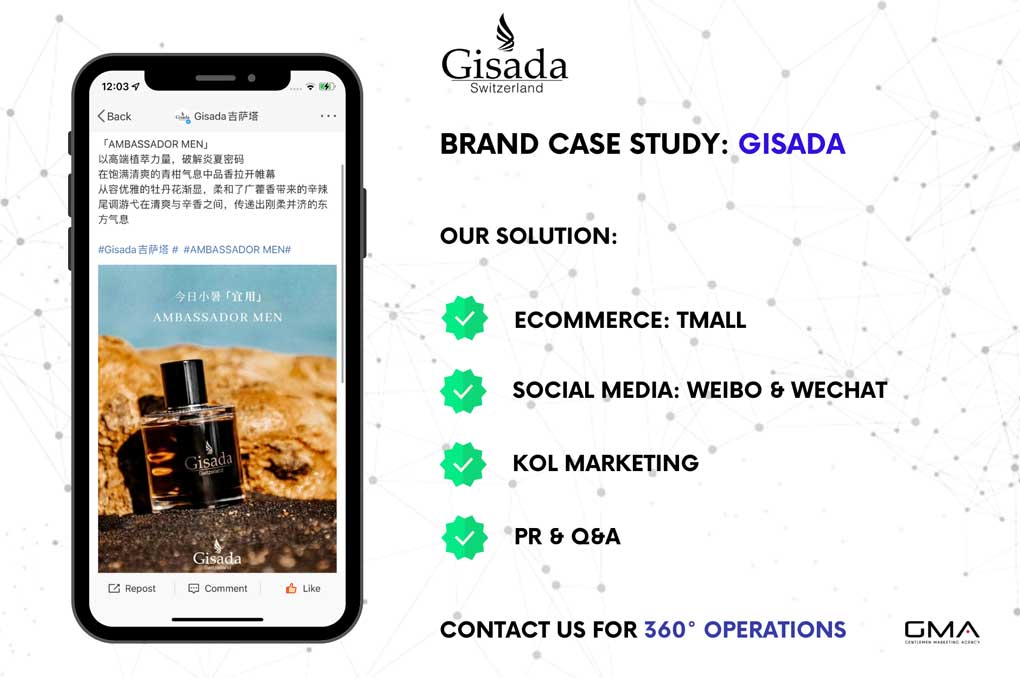
Advantage: There Are Multiple Business Models to Choose From
Opening a Tmall Global store opens various options for brands to compete and sell imported products to Chinese customers. What’s more, you have different options to get your products sold overseas. Increase your online sales by leveraging these business models offered by Tmall Global:
Tmall Overseas Fulfillment
This business model allows brands to place a small batch of their products into a Tmall bonded warehouse. They will be sold to the Tmall Global platform regardless of their product categories. This e-commerce consignment solution is perfect for brands that want to calibrate their products and pricing before they make a full entry into the Chinese market.
Tmall Direct Import
Another e-commerce model for foreign businesses is a direct import. Like the TOF, merchants can sell imported products, albeit through Tmall Global’s centralized import system.
Tmall Global has six large warehouses worldwide where merchants can send their goods, regardless of product categories.
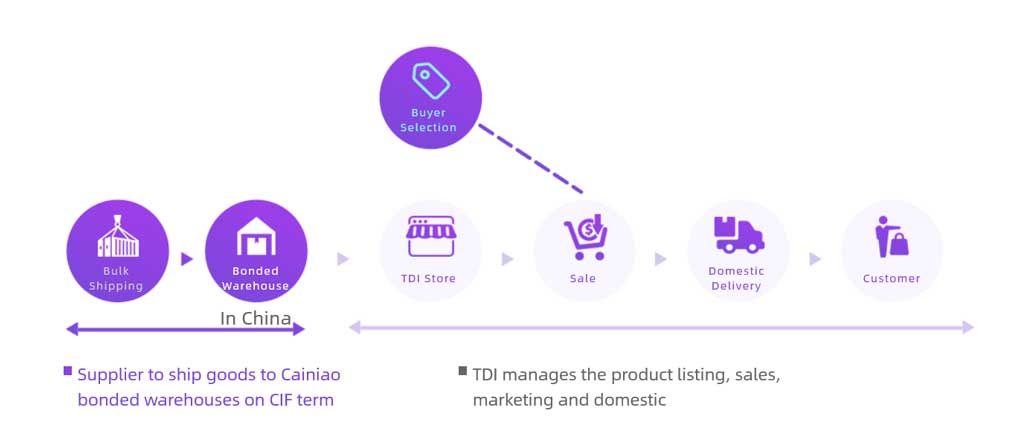
Disadvantage: Per-Unit Cost Is Higher When Shipping Products to the Chinese Market
The last disadvantage of Tmall Global is the per-unit costs. Since you don’t own a warehouse, shipping your products may be more expensive, driving up the cost per unit. One solution for this problem is to leverage Tmall’s models and warehouses. However, expect slower shipping times, which might negatively impact the overall customer experience.
Tmall Vs. Tmall Global: Which One Should I Choose to Sell on the Chinese Market?
If you want the best of both worlds, you can sell to both Tmall and Tmall Global stores. However, suppose you feel like you’re limited to only one option. In that case, consider the following factors when choosing which platform to use for selling your imported products:
Are Offline Sales a Big Part of Your Annual Sales?
If the answer is yes, and you have products stored in warehouses across China, then a store in Tmall is more viable. Tmall Global offers robust import options and features for overseas stores without the red tape. If you’ve already gone through this red tape, you no longer need to pay the hefty fees for Tmall Global stores. A store in Tmall is more cost-effective in this case.
However, if you’re new to the Chinese market and want to test out the waters, Tmall Global is a great platform to start on. You won’t have to deal with a mountain of documents but can still tap into the potential of the largest e-commerce market in the world.
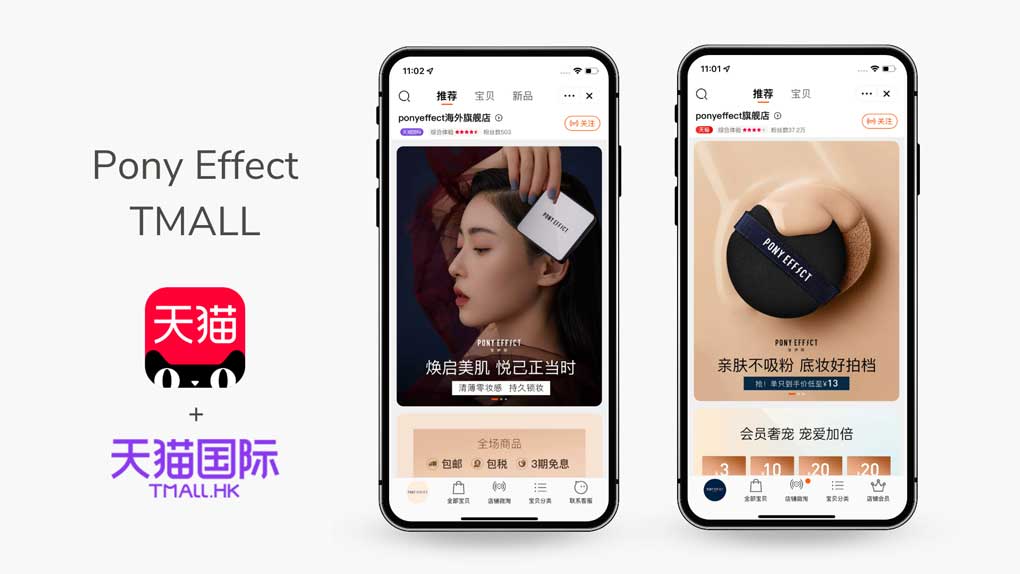
Are You Planning to Commit to the China Market in the Long-Term?
We think this is an important question, especially for merchants primarily operating abroad. Your overall strategy and long-term plan are critical factors when deciding between Tmall and Tmall Global.
Tmall is best for merchants that have already established warehouses and stores and are planning to stay there for a long while. On the other hand, if you’re still assessing the markets, your closest competitor, and similar companies, then Tmall Global can be a viable option.
Just make sure you use all the tools for Tmall Global stores to maximize the platform. For example, the company Holland Pavilion used a wide range of customer analytics by Tmall Global to study consumer behavior in China and how they can expand in the long term.
While Tmall Global provides ample opportunities for overseas merchants to sell their goods directly to China, Tmall becomes a more cost-effective solution once you get the hang of the market. This is not to say that Tmall Global is inferior. We recommend this platform if you want to skip the grueling process of applying for licenses and fees when registering with a Chinese entity.
How to Open a Tmall Global Store
So, you want to open a Tmall Global store to sell your products in China. What steps should you take to achieve that? Unlike Tmall, opening a shop in Tmall Global is easier. But, there’s still a process that you must go through, some documents to submit, and fees to pay. Let’s explore all the things you need to accomplish in this section.
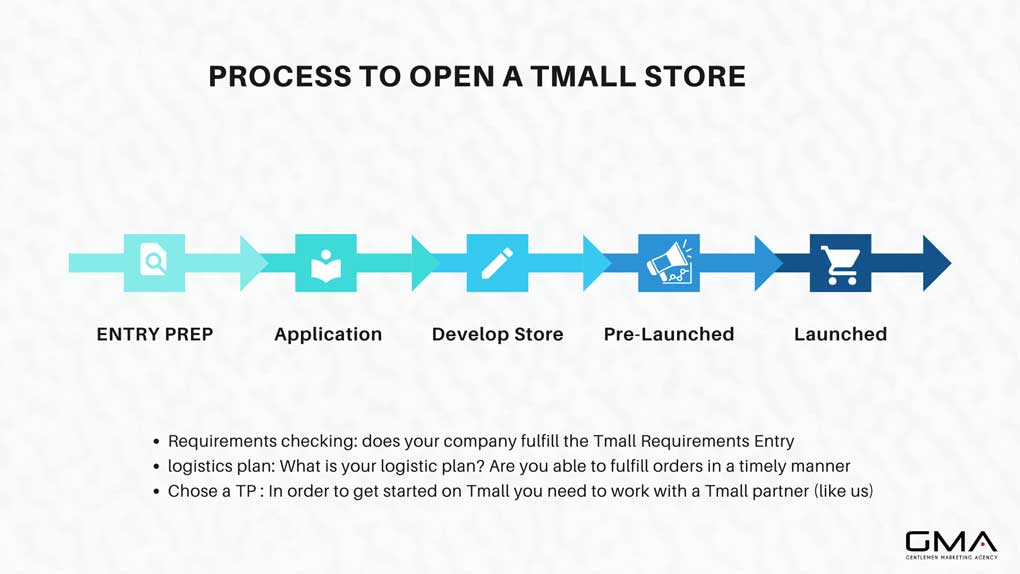
Prepare an Alipay Account
Before anything else, you should prepare an Alipay account. You’ll use this account to send and receive payments using Alibaba’s ecosystem and your customers in China. You’ll use your Alipay account to send payments to Tmall when registering your store on their global platform.
Be Registered As An Overseas Merchant With a Legal Entity
The first step is to ensure you’re registered as a legal company abroad. Tmall Global strongly emphasizes authenticity in this sub-platform, which means you’ll have to prove that you’re not selling fraudulent products.
For flagship stores, you must ensure that you provide the correct documents proving you have a brand’s copyright or trademark. You must also ensure that your brand has good operating conditions to qualify for flagship stores.
If you don’t have a trademark, you can register either as a specialty-type store or a franchise store. You must be an authorized distributor of branded products to apply for these store types. One key difference is that specialty stores sell only one brand in China. In contrast, franchise stores are used by merchants authorized to distribute multiple brands, usually under one big principal brand.
Choose a Business Model
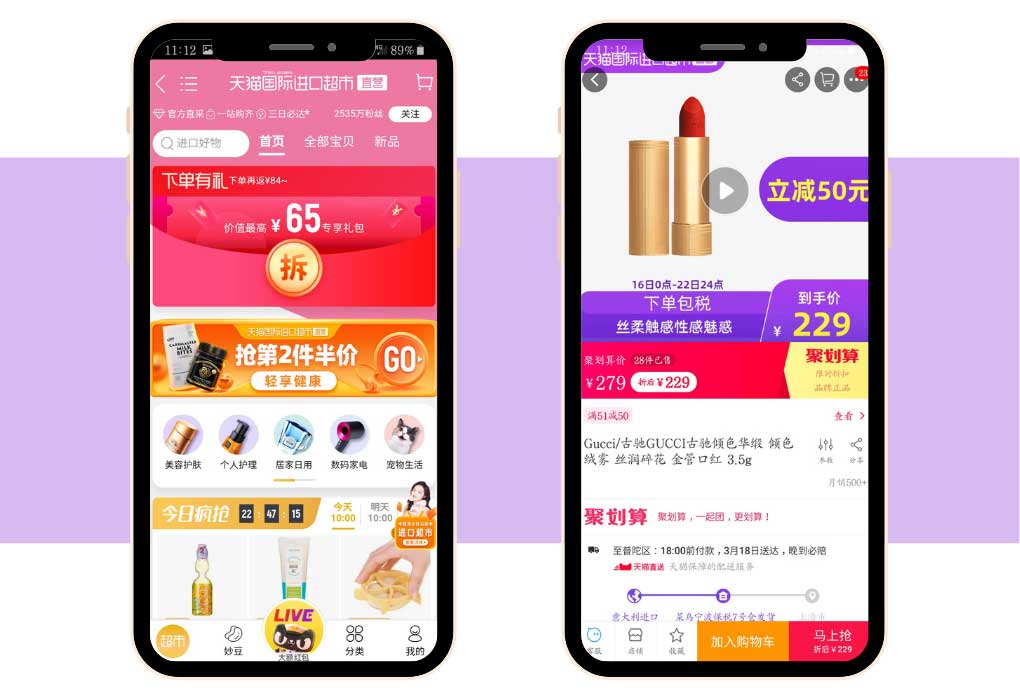
The second step is determining how you will send your goods to China. Usually, merchants use Tmall Global’s operational models to ship their goods. As we said, there are two models to choose from:
- Tmall Overseas Fulfillment
- Tmall Direct Import
Choosing which model to use depends on your needs as a merchant. Please read our previous sections to know more about them.
Prepare Important Documents
Another crucial step is to prepare the documents that prove your brand’s authenticity.
You must submit your copyright or trademark certificate to open a Tmall Global store. Similarly, you have to provide certificates authorizing your distribution of branded products. The Tmall Global team will ask for these documents from you.
Furthermore, you have to prove that your products will be dispatched 120 hours after a consumer makes a purchase. This is achieved by presenting a plan to Tmall. You can accomplish this by either shipping your products with your packages or leveraging the bonded warehouse of Tmall.
You also need to have set locations for handling customer returns in regions like Hong Kong, Taiwan, and mainland China.
Here’s the complete list of documents you need to prepare.
You’ll have to pay the security deposit fee before you get started and sell your goods to China.
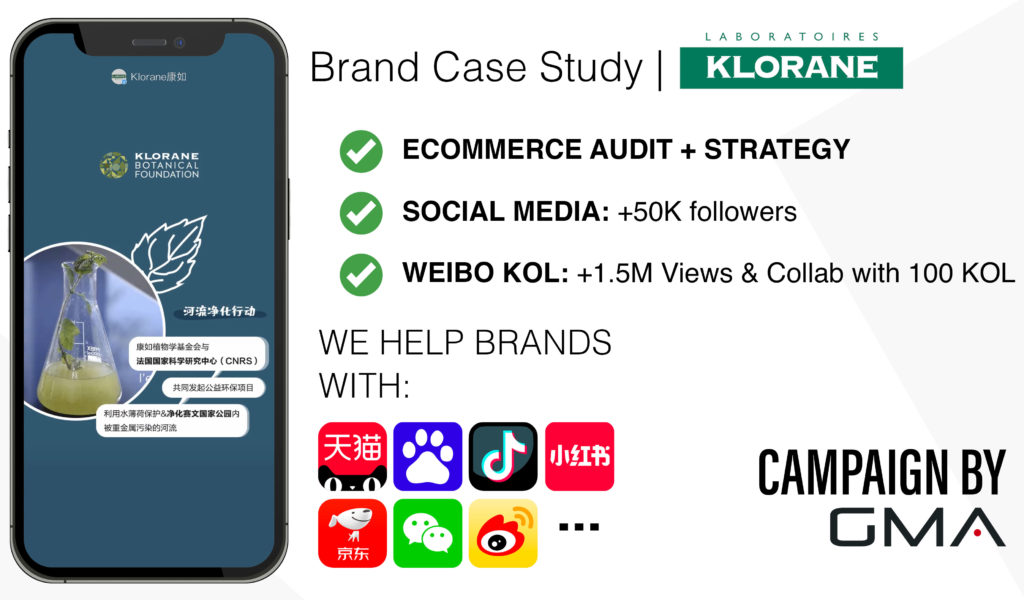
Set Up Your Store
Once you get approved by Tmall Global, it’s time to set up your store and go live. Be sure to get acquainted with how to ship your products to China. To maintain your presence in China, you must ensure that you’re paying your annual fee for your Tmall Global store.
On top of the security deposit and annual fees, you also have to pay for the commission and cross-border transaction fees when selling in China, which are directly charged by Alipay to your account.
After setting up your store, start selling your branded products in China.
Want to get started with cross-border eCommerce in China on Alibaba’s Tmall?
China is not an easy market but it’s definitely worth entering it, as it’s the biggest e-commerce market in the world. With many legal requirements to go through, we recommend starting from Tmall Global, where you can test the market and see if you want to go through with your further China investments.
We can help you with the whole registration process and we also offer a Tmall maintenance and marketing strategy, so you make the most out of this investment. Gentlemen Marketing Agency is a certified Tmall Partner and we guarantee you the utmost service.
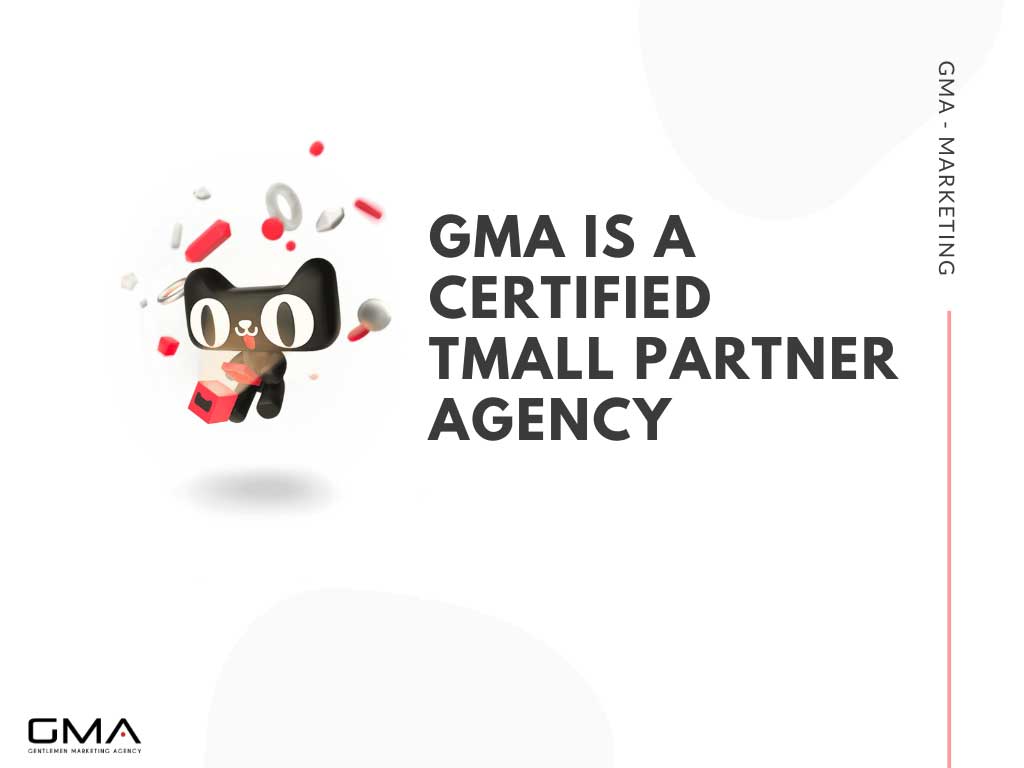
Over more than 10 years in the business, we learned all ins and outs of Tmall and we gained the experience needed to offer you the best service on the platform. Our team of Chinese and foreign experts will make sure that your Tmall store is well-optimized and gets the traffic it needs.
Our Tmall services include:
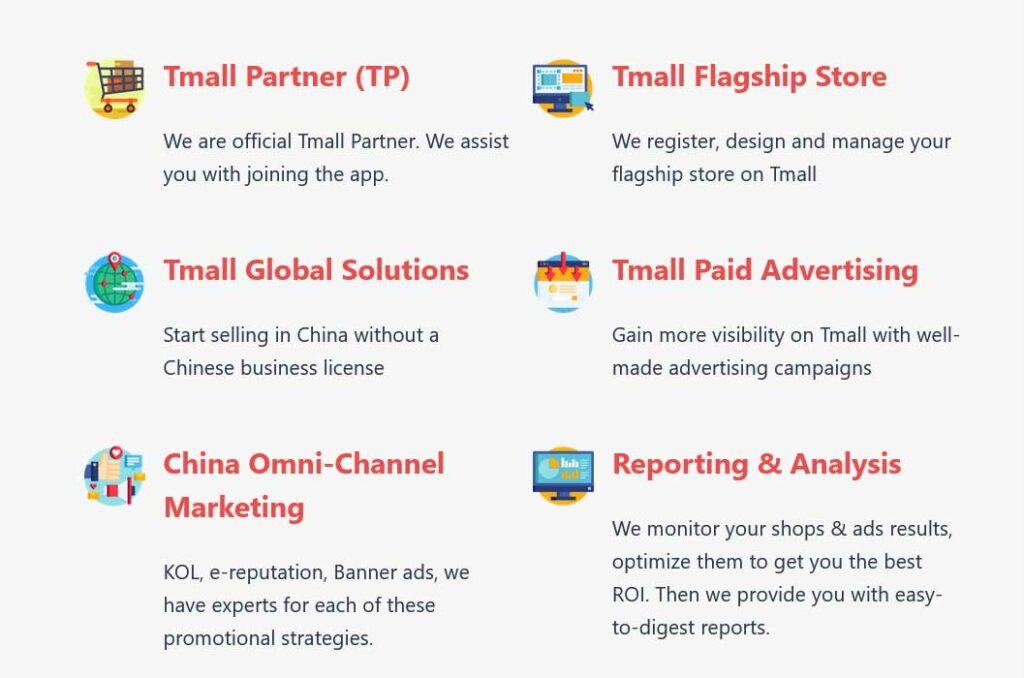
Don’t hesitate to leave us a comment or contact us, so that we can schedule a free consultation with one of our experts that will learn about your brand and provide you with the best solutions for your Tmall entry. Let’s get started!
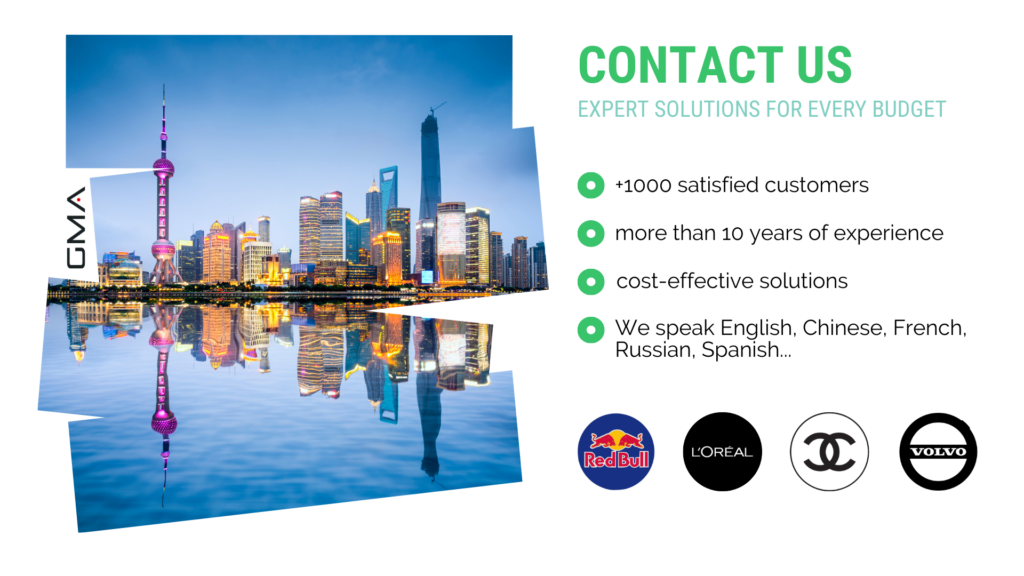

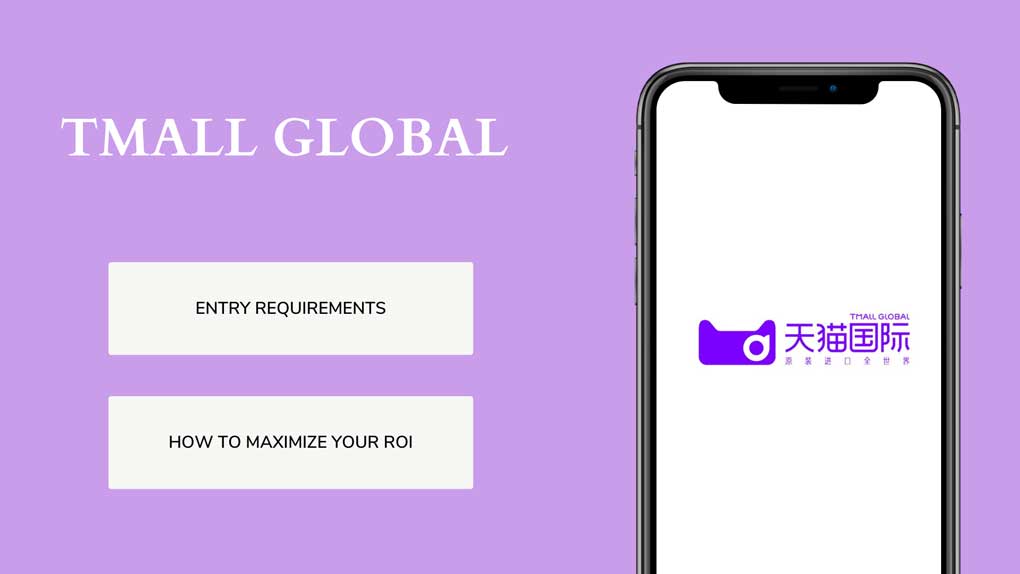
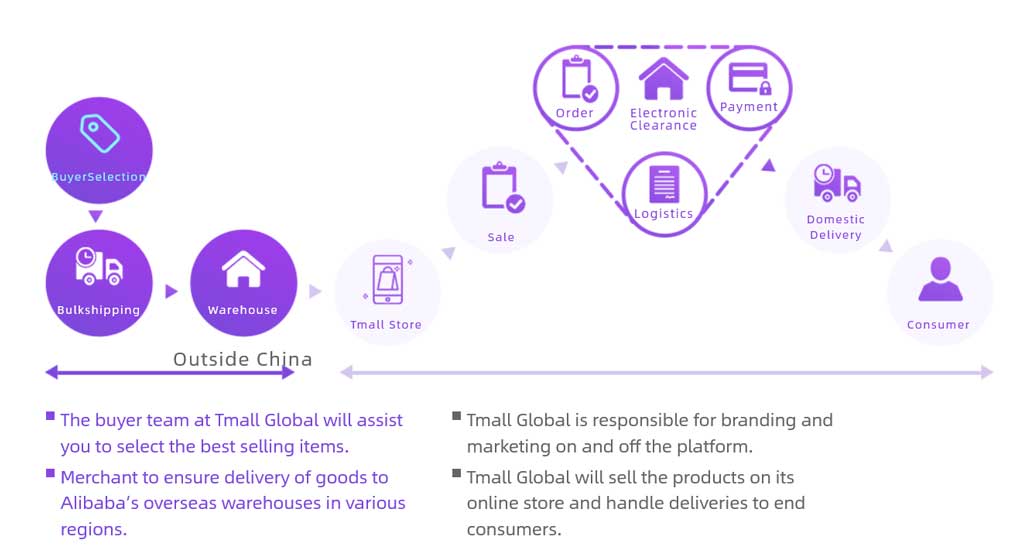
1 comment
Kris
Hello,
We are looking at opening a TMALL store in China. I currently have a distributor that is selling our boards on Little Red Book and supplying several different store with our boards. My distributor is asking to open a TMALL store for himself but I would prefer to open under our business name from Australia just in case we ever stop dealing with our distributor in China. We want to own the store ourselves as we own all of the trademarks etc.
Regards,
Kris